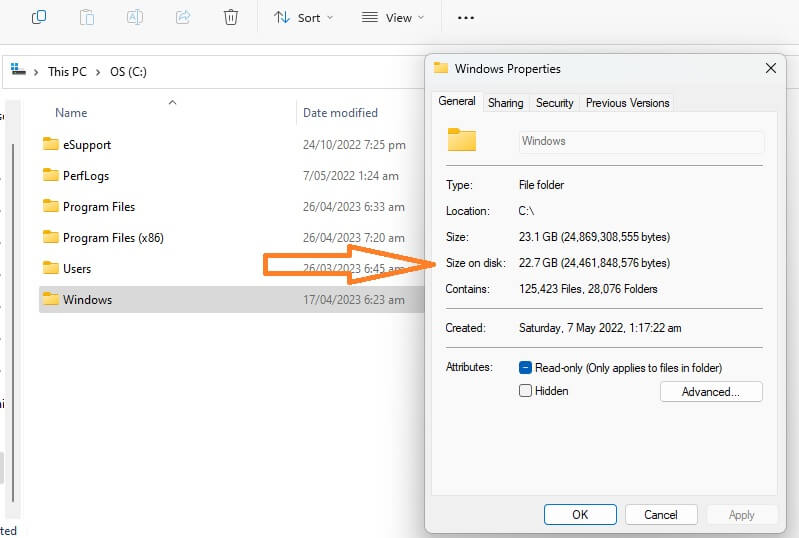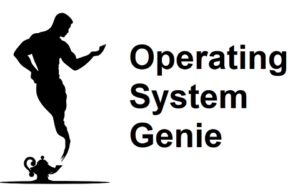Nowadays solid state drives (SSDs) are used for all computers. All SSD hard drives have a capacity and in this article I will explain if having a full SSD slows down a PC.
A full SSD does not slow down a PC. Independent tests have shown that a PC has the same load times, and performance regardless of how full or empty the SSD hard drive is. Having a full SSD hard drive is only an issue when you want to install new programs or download large files.
There are a few things to know about using your SSD hard drive. Below, I will cover:
Let’s get into it!
Is It OK if Your SSD is Almost Full

Overall, it’s perfectly fine if your SSD is almost full. Especially for computer performance. But, most programs are reasonably large, and typically you will need additional space at some point.
Unless you need the extra space there is no issue with your SSD being full. Below is a table that shows the results of a test. A modern computer was tested 5 times. Each time the hard drive was more and more full.
| Test | 60% Full | 70% Full | 80% Full | 90% Full | 99% Full |
| PC Restart | 23 seconds | 23 seconds | 25 seconds | 24 seconds | 23 seconds |
| Open Benchmark | 12 seconds | 12 seconds | 12 seconds | 12 seconds | 12 seconds |
| Benchmark FPS | 65 FPS | 65 FPS | 65 FPS | 65 FPS | 65 FPS |
| Copying 1GB | 23 seconds | 19 seconds | 19 seconds | 23 seconds | 18 seconds |
| Transferring 1GB | 7 seconds | 7 seconds | 7 seconds | 7 seconds | 8 seconds |
From the table you can see that the performance was exactly the same. And how full or empty the hard drive is had no effect on how fast a computer performed.
With modern computers, a hard drive will not get close to being full unless you play lots of different games. Or, store large video and image files on your hard drive. Recently made computers come with 250GB as standard.
Whereas, for gaming 1 TB is more common. The operating system, such as Windows 11 only takes up about 50 GB. Leaving a huge amount of space remaining.
Do you need to defrag an SSD hard drive
In about 2005 SSD hard drives became the new norm, and all new computers from then on came with SSD hard drives. Prior to that HDD hard drives were used. These are significantly slower than SSD hard drives.
HDD hard drives do in fact get slower the closer they get to being full. It’s also recommended to defragment your drive once a month or so. Or, makes it run much faster. But, you don’t need to defrag an SSD hard drive. In fact, it doesn’t do anything.
Is bad for your SSD to be almost full
A computer will perform the same regardless of how full your SSD hard drive is. But, it’s not bad at all for your SSD to be almost full. As you may know, the other key components on a computer are the CPU (processor), graphics card (GPU), and RAM.
Typically, all of these will max out when you are doing resource intensive tasks such as video rendering, or gaming. It’s also fine for these to be operating at full capacity. I explained this in more detail in this article about what your GPU percentage should be at.
How much SSD usage is normal
Most people use a computer in exactly the same way. They browse the web, watch videos, do work, or study. Therefore, overall, most people also use about the same amount of hard drive space. Gamers use a bit more because games are generally very large.
Here’s a breakdown of how much space a normal user will use on a hard drive
- Windows operating system (Windows 11) – 23 GB
- Google Chrome, or Firefox – 0.5 GB
- Graphics intensive games games – 50 GB each
- Other miscellaneous apps like Skype – 0.05 GB each
- Movies or TV Series Episodes – 1 GB to 2 GB each
Therefore, in total for a non-gaming computer about 30GB of SSD usage is normal. Whereas, for a gaming computer where a person plays about 3 to 4 games, about 200 GB of SSD usage is normal.
Another common use for a computer is to stream music and TV shows. Such as on Spotify or Netflix. These do not store the entire file on your computer. Instead they store parts of it, called a cache. It’s a good idea to clear this folder if you need extra space, and do a lot of streaming on your computer.
I recently bought a new Asus laptop that runs Windows 11. I play one game, and otherwise use it as a work computer. Here’s a screenshot that shows how big Windows 11 is – coming in at roughly 23 GB.

In total, my hard drive currently uses about 100 GB of storage.
Does an SSD Get Slower Over Time
An SSD does get slower over time. People have reported that an SSD can degrade as much as 50% in read and write speed after a few years. However, this only occurs if an SSD is faulty.
Ordinarily an SSD will not get slower over time. But, sectors can fail. These are called bad sectors. Typically a hard drive will last about 3 to 5 years.
All SSDs have a lifetime amount of reads and writes until they fail. For an everyday user, this is more than enough before it becomes a good idea to upgrade.
If you experience your computer slowing down and suspect it’s the hard drive there are a range of tools built into Windows to identify if there’s an issue with your hard drive. Such as the ScanNow feature, which scans your hard drive for issues, and fixes them for you automatically.
On Youtube there are tons of videos that show how to speed up an SSD hard drive.
Does a Full SSD Affect FPS
A full SSD has no effect on FPS. Independent tests have shown that the FPS of a PC stays exactly the same regardless of how full or empty an SSD hard drive is.
FPS is mostly controlled by the graphics card and CPU. As well as, the in game settings. Increasing the amount of space on your SSD hard drive will not affect FPS.
How much SSD should be free
It’s not necessary to leave any free space on your SSD hard drive for performance. But, it is a good idea for convenience. That way you don’t need to go and delete some files when you want to install something.
Therefore, around 50GB to 100GB free should be more than enough to install a new program on a 500 GB or bigger hard drive. But, around 5GB is more than enough if you aren’t going to install any new programs any time soon.
